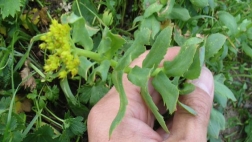The herb Rhodiola rosea has been shown to protect marathon runners against viral infection, which may prove beneficial for more than just athletes, suggests a study from Appalachian State University (ASU) Human Performance Laboratory at the North Carolina Research Campus.
Rhodiola rosea, also known as artic root or golden root, has been attributed to health benefits such as helping to fight depression, aiding weight loss, increasing sexual function and improving energy levels.
The study, published July 31st in Frontiers of Nutrition, found that marathon runners who ingested 600 mg of Rhodiola rosea a month before a race had up to 12 hours of protection against viral infection after the marathon. Runners are prone to viral illnesses, such as upper respiratory tract infections, after competing.
“Basically after heavy exertion bacteria and viruses can multiply at a higher rate than normal due to factors in the serum like stress hormones and inflammatory cytokines,” David Nieman, DrPh, FACSM, director of the ASU lab said in a press release. “This is why runners are six times more likely to get sick after a marathon. We showed that in those who used Rhodiola rosea the viruses could not multiply, meaning it was acting as a countermeasure.”
The ASU study builds on previous human trials demonstrating anti-viral activity of blueberry and green tea polyphenols, researchers noted.
Researchers used an in vitro assay to show the extent of protection by the polyphenolic compounds, which was co-developed by Nieman and allowed them to test participants’ blood. Previous research by the team, using these assays, allowed the team to also identify a mix of polyphenolic compounds from green tea to blueberries that is also effective at preventing viral replication in athletes after intense competition.
The anti-viral effects of polyphenols extend beyond athletes, researchers noted, citing Nieman’s 2012 study showing individuals who eat three or more servings of fruit daily substantially reduced their incidence of upper respiratory tract infections.
“We are producing some of the first human studies showing plant polyphenols− the naturally occurring chemicals in fruits and vegetables that give them their colors like purple, red and yellow− work with the immune system to help clear viruses and keep their ability to multiply under control,” Nieman said in the press release.
(from Fox News Health)



Thanks a lot for sharing!